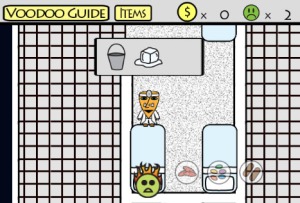Mr. Lau has been working in the Baltimore games industry for several years, has spoken at UMBC many times (usually about how to get a job in the industry), and will be teaching Art 384, “Introduction to 3D Computer Animation” this Fall. He is a ZBrush master.
In addition to working at Zenimax Online for the past few years, he has also worked at Breakaway Games and done some architectural rendering. He also has a side business making small sculptures in ZBrush that get printed via rapid prototyping. One is shown below; more at www.launch3d.com.








